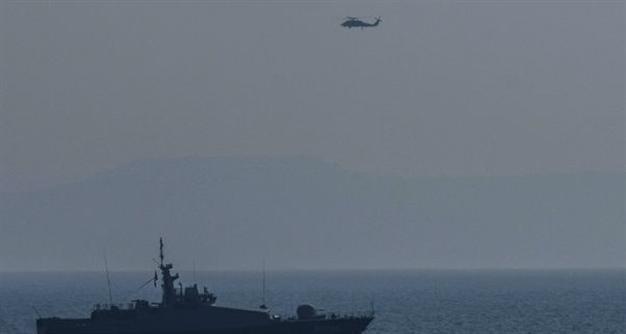Turkey-EU deal stops human trafficking on Aegean
BALIKESİR – Agence France-Presse

AFP photo
The Turkish villagers had grown used to hearing the smugglers arrive in the dead of night, speeding through the narrow streets in minibuses packed with Syrians, Iraqis and Afghans headed for the rocky coves nearby.
“Before the EU agreement there were hundreds of refugees crossing the sea here,” said 50-year-old fisherman Hasan Balcı as he played cards in a cafe. “But now there are none.”
Outside the small village of Bademli on the Turkish coast lie the turquoise waters of the Aegean Sea, with the Greek island of Lesbos visible on the horizon just 10 kilometers away.
But with many migrants and refugees now fearing they will be sent straight back, even if they succeed in making the dangerous crossing, the dream of a new life in Europe is starting to slip out of sight.
Locals at other well-known launching points along the coast – from Küçükkuyu, opposite northern Lesbos, to Çeşme further south, opposite the island of Chios – say that in recent days migrants have simply vanished from the streets.
Before the deal between Turkey and the EU to send back all irregular migrants landing in Greece took effect on March 20, the “little Syria” district of Basmane in Izmir had been full of new arrivals.
Migrants would pay people smugglers up to $1,200 (1,070 euros) each to arrange transportation to Greece.
Cafe owners now point to empty tables, where migrants and smugglers used to negotiate a price for the crossing.
“Now it’s finished,” said one of many shopkeepers who had a lucrative sideline in selling life jackets, samples of which still hang alongside suits and jackets at the front of his store.
Assam, an 18-year-old refugee from Damascus, whose parents are both dead, has been living in İzmir for six months but had wanted to eventually travel to Germany.
“Now I really don’t know what to do,” he said, sitting with a group of fellow Syrians in a cafe. “Here in İzmir you can’t find money to eat and drink. We are suffering from humiliation.”
His friend Wada, a 20-year-old from Idlib, said he would prefer to return to Syria, even as the civil war there rumbles on. “I want to go back to the shelling, to the rubble, to the bombing – it’s better than dying in Turkey.”
Another young Syrian, who used to work as an IT specialist in Damascus, has become part of a smuggling network.
Speaking by telephone, he said he made in the region of $10,000-15,000 last year, taking a $50-100 cut from each trafficked person.
“Some people are afraid to be smuggled now and this [the EU deal] has had a bad impact on the business,” he said, adding that the recent closure of the Greek-Macedonian border to migrants has also put people off.
“But the bottom line is that this business is called people smuggling, and it will never stop. It will slow down but it will never stop.”
European leaders have presented the deal – under which they have agreed to take in a number of Syrian refugees directly from camps in Turkey – as a way to curb smuggling.
Asked about the hundreds that have died at sea, the 23-year-old smuggler insisted no one aboard his boats had drowned. “I can’t describe how bad I feel about migrants that have died at sea. It’s a lifelong guilt to be responsible for someone’s death.”
According to official Greek figures, there were 1,498 arrivals on March 19, the day before the agreement came into place.
By March 22 that had dropped to 600 and by March 24 to zero but, although strong winds in the region could also have been responsible for the decline.
Turkish, Greek and other NATO member state ships are in full view on the water, while on land, Turkish police have increased controls on the main roads leading to the Aegean coast, turning back those suspected of planning to take to migrant boats.
Back in Bademli there are no migrants to be seen, but beneath the olive trees leading down to the water the ground is covered with the flotsam and jetsam of lives hastily left behind - clothes, bags, lifejackets and rubber rings, nappies and baby wipes, much of it already rotting in the earth.
